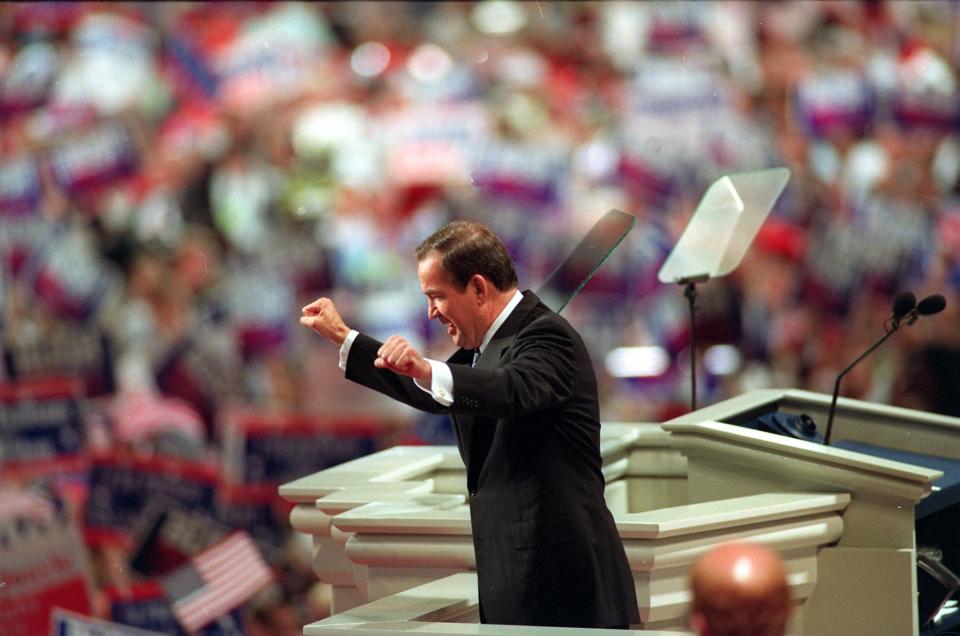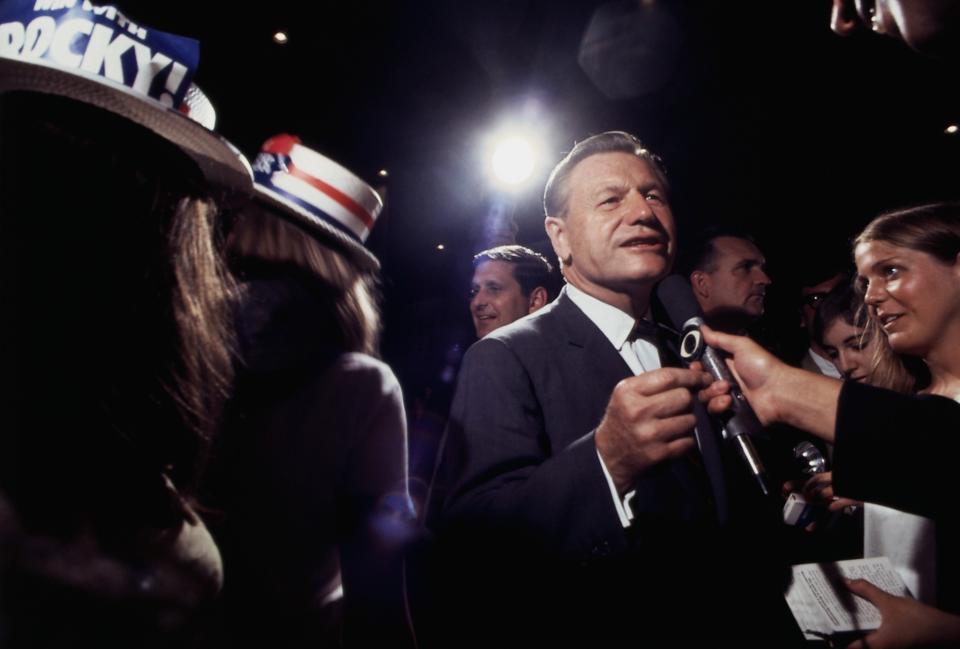This time the words matter: What to listen for in Cleveland

Conventions don’t matter. They are sideshows. Rehearsed and fake, the speeches are all alike, akin to the droning whine coming from the adult characters on Peanuts. And candidates’ convention “bounces” tend to be short-lived. That, at least, is what some political analysts have said about the quadrennial, multimillion-dollar, tightly scripted three-ring circuses, substance-lite spectacles rather than places where intraparty differences can be ironed out.
But Trump’s convention, which kicks off today at Cleveland’s Quicken Loans Arena, is an illustration of why words matter in presidential campaigns. Language is power. That’s especially true now. The uniquely tendentious nature of Donald Trump’s candidacy, as well as his unprecedented use of Tweets and rally speeches to power his rise, makes this convention more significant than others have been in recent years.
Trump is polling at 40 to 43 percent support nationwide. He is the most unpopular and controversial general election major party candidate since at least George McGovern in 1972. Ultimately, Trump will need to find ways to grow that number and probably reach 44 or 45 percent of the popular vote if he hopes to prevail in the Electoral College. (Under this scenario the Libertarian and Green Party candidates combined would take more than 10 percent of the vote; in 1992, something similar happened when Bill Clinton won with 43 percent of the popular vote while third-party candidate Ross Perot took 19 percent.) Trump’s margin for error is minuscule.
Trump’s rhetoric — offensive to his critics, bracing to his fans — has thus far been the engine fueling his ascent as well as his Achilles’ heel. As he and his allies start pitching the voters from the stage in Cleveland today, Trump is hoping to avoid an open revolt on the floor, unite his fractured party, and avoid coming across as temperamentally unfit for the job.
Whether he can reach these goals will partly be determined by the words uttered from the stage over the next four days. Just as Pat Buchanan’s 1992 “culture war” convention address shaped an intolerant image of the GOP, this year’s Republican speeches will likely help shape voters’ perceptions of a party in the midst of a virtual civil war. Thus, viewers should be looking at how his convention answers six big questions that will determine the course of the convention and shape Trump’s public image as he seeks to compete with Clinton in the fall campaign.

1) Will Trump’s convention feature speeches that double down on the anti-Muslim, anti-women, and anti-Latino rhetoric that has not infrequently marred his tweets and rally speeches? If so, then it’s hard to see how he’ll close what polls show to be a massive gender gap and an equally big gap with nonwhite Americans.
2) Will the convention speeches remind voters that Trump triumphed over 16 rivals by mercilessly demeaning them as “low-energy,” “lyin’,” and “pathetic”? If Trump and his allies reprise such moments onstage, then the oratory will rub salt in the GOP’s still-open wounds. Viewers should consider what language Trump and his allies use to reach out to the many elected officials who, remarkably, have opted to stay home, and the millions of voters whom they represent.
3) Will Ted Cruz provoke the ire of Trump’s base? Cruz claims he wants to use his address to highlight his vision for the future of the country and isn’t yet ready to endorse Trump. Will we witness the remarkable spectacle of a primetime speaker, the party’s runner-up, elliptically, or even overtly, denouncing the party’s nominee?
At the Republicans’ 1964 San Francisco convention, New York Gov. and defeated presidential candidate Nelson Rockefeller railed against the extremist tactics of nominee Barry Goldwater’s conservative followers. Eliciting a chorus of boos, jeers, and threats of physical violence, Rockefeller told the hostile audience that “our sole concern must be the future well-being of America,” and denounced “the extremist threat” as a “danger to the party and … to the nation.” “There is no place in this Republican Party for such hawkers of hate, such purveyors of prejudice, such fabricators of fear,” Rockefeller added.
Cruz is unlikely to be so caustic, of course. But he won nearly 8 million votes and still loathes his party’s nominee, making him potentially Rockefeller-esque if he decides to jab Trump and antagonize Trump’s legions.

4) Will Trump’s attacks on Hillary and Bill Clinton and President Obama go too far? Will the language be so shrill that it will turn off even voters skeptical of Hillary Clinton’s trustworthiness? Recall that Bill Clinton handily won reelection in 1996 and helped lead his party to midterm election gains in 1998, despite Republicans’ repeated attacks on him as amoral and craven. Will Trump overplay his hand by dabbling in conspiracies and charging that Hillary Clinton is a criminal with blood on her hands?
5) The Republican Party has vowed that this convention will highlight how Trump is fit to handle the rigors and responsibilities of the Oval Office. It will also seek to show Trump as, in Mike Pence’s words, “a good man.” How will family members, minor entertainment celebrities, and assorted other speakers make that case? What descriptions will they use to negate Trump’s deeply divisive rhetoric of the past year-plus and bathe him in a favorable light?
6) Finally, viewers should be watching for whether the speeches offer a consistent message each night or whether they are wildly out of sync with each other. Will they show evidence of having been thoroughly vetted and scripted by Trump’s “boiler room,” where a speechwriting team (at typical conventions) is supposed to review and put the nominee’s stamp on every word? Or, are all of the “authentic” nonpoliticians going to say what they think with little overall coordination with Trump’s campaign?
The GOP convention is unlikely to make or break Trump’s candidacy by itself. But it could potentially make him less (or more) of a long shot in November.
This week, the words will matter.
_____
Matthew Dallek, an associate professor at George Washington University’s Graduate School of Political Management, is author of Defenseless Under the Night: The Roosevelt Years and the Origins of Homeland Security.


